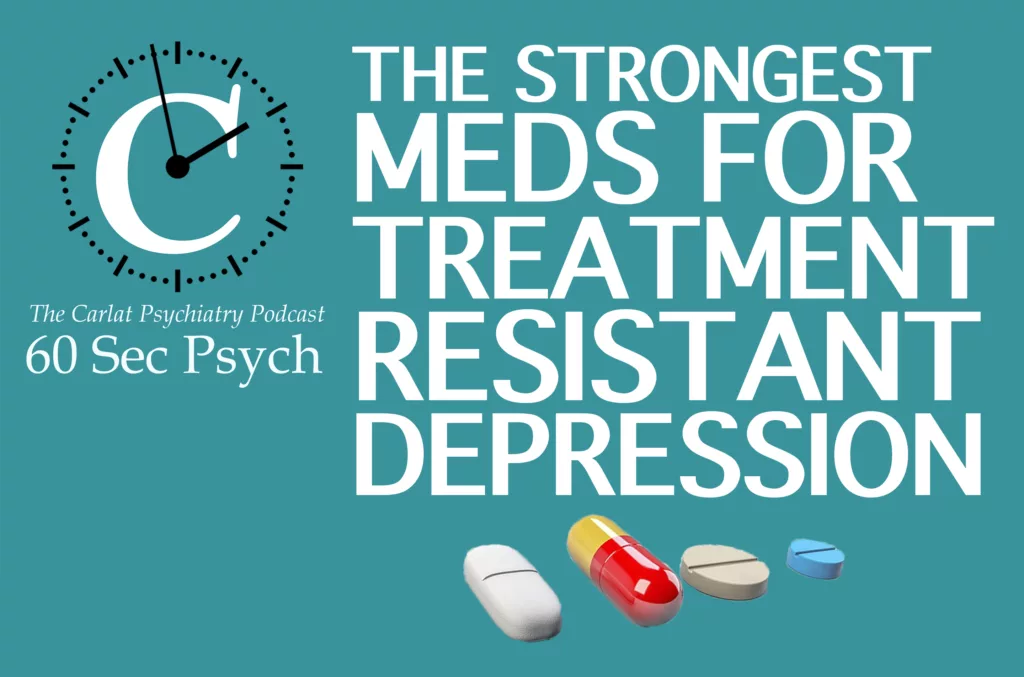Lithium, atypical antipsychotics, ketamine, thyroid… these consistently rank among the most effective medications for treatment resistant depression, but which is the strongest? Strawbridge R, Carter B, Marwood L, et al. Augmentation therapies for treatment-resistant depression: systematic review and meta-analysis. Br J Psychiatry. 2019;214(1):42‐51. [Link]
Published On: 6/24/2020
Duration: 2 minutes, 8 seconds
Transcript:
Lithium, atypical antipsychotics, ketamine, thyroid… these consistently rank among the most effective medications for treatment resistant depression, but which is the strongest? One way to measure strength is through effect size, which tells you how big a difference the treatment made. Most effect sizes compare placebo to active treatment, but another way to do it is to compare the patients before- and after- each treatment. That might be a more fare way to compare across studies, particularly when comparing psychotherapy and medication studies which use very different types of placebo, and that’s what the authors of this meta-analysis of 28 studies did.
And the numbers…
The most effect treatments were NMDA agonists: Ketamine and two antibiotics: Minocycline and d-cycloserine. These all had effect sizes around 1.5
Next in line was aripiprazole, effect size 1.3, and lithium, effect size 1.0. Those were also best-studied of the treatment. Other atypicals had fewer studies and smaller effects than aripiprazole: olanzapine, quetiapine, brexpiprazole, risperidone, all had effect sizes around 1 and ziprasidone was a drop lower at 0.65. Ziprasidone also had the highest drop-out rate
But don’t forget psychotherapy. Although only 10% of the trials were psychotherapy studies, including CBT, mindfulness, and psychodynamic, the average effect size for therapy was 1.4, compared to an average of 1.2 for medications.
Got Feedback? Take the podcast survey.


_-The-Breakthrough-Antipsychotic-That-Could-Change-Everything.webp?t=1729528747)



